Deprivation of Liberty Safeguards (DoLS) Training
Quantity: 1

Duration 1-2 hours
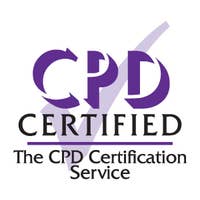

100% online training
Start when you like
Learn on any device (desktop, mobile or tablet)
Instant assessment and result
1 learner per course
Train teams of all sizes
Bulk discounts starting at 10% off 10 courses
Pay by invoice with 30 day payment terms available (5+ courses)
Includes a 10% discount for 10+ courses
The Deprivation of Liberty Safeguards were introduced to help people who lack capacity to maintain their independence, dignity and right to freedom. As someone who works with adults in need, it’s important that you have an awareness of what is covered by the Safeguards and the Mental Capacity Act 2005 so that you can take appropriate action and protect the welfare and freedom of choice of the adults that you care for. This course will explain how the Deprivation of Liberty Safeguards apply to your setting and outlines what your responsibilities are.
The Department of Health and Social Care (DHSC) has confirmed that the Liberty Protection Safeguards (LPS) implementation date has been delayed. Until a new implementation date for the LPS is announced Deprivation of Liberty Safeguards (DoLS) remains relevant.
100% online training
Access anywhere
Same day digital certificate
Printed certificate posted next working day
Full audio voiceover
Assessment retakes at no extra cost
Learn at your own pace with no completion deadlines
Developed by a qualified safeguarding professional
Accredited by CPD
Bulk discount for orders of 10+ courses

Save on our courses when you buy more training upfront. Lock in a better price now and access the training whenever you need to. You can mix and match any of our courses too and get the discount off your whole order.
10+ courses = 10% off
50+ courses = 20% off
100+ courses = 30% off
500+ courses = 40% off
By the end of this course learners will:
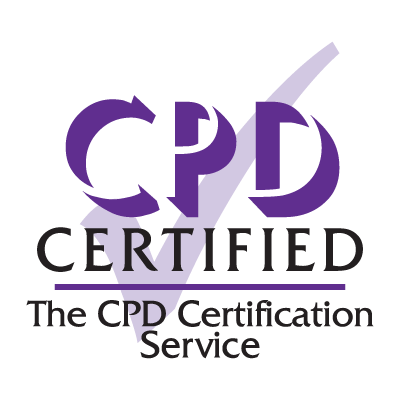
Accredited by CPD
All of our courses are accredited by the CPD Certification Service as conforming to universally accepted Continuing Professional Development (CPD) guidelines.
Our in-house Learning Designers develop all of our courses to give you and your learners the most engaging training possible.
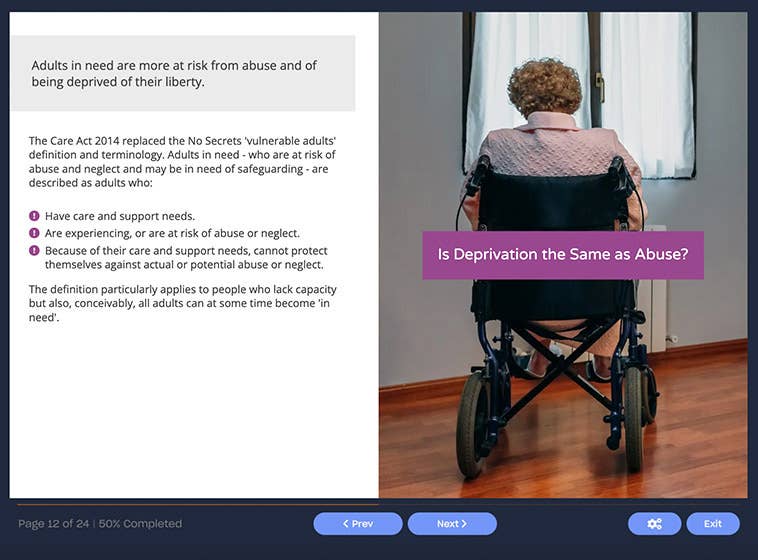
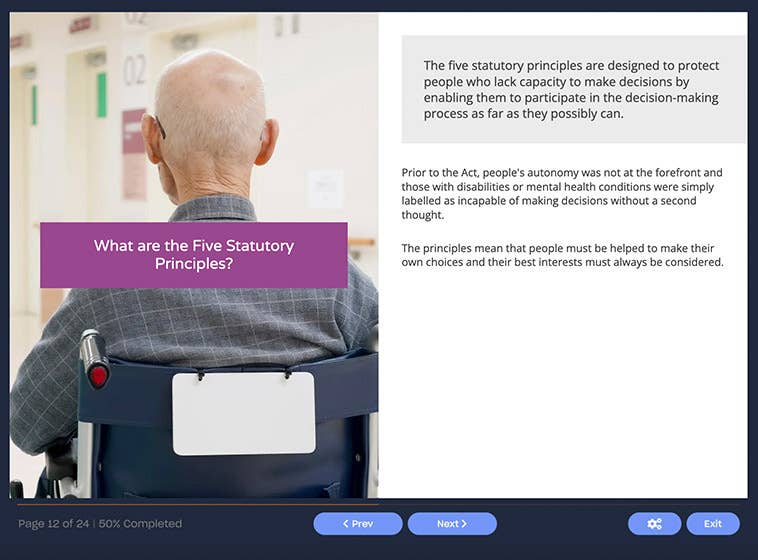
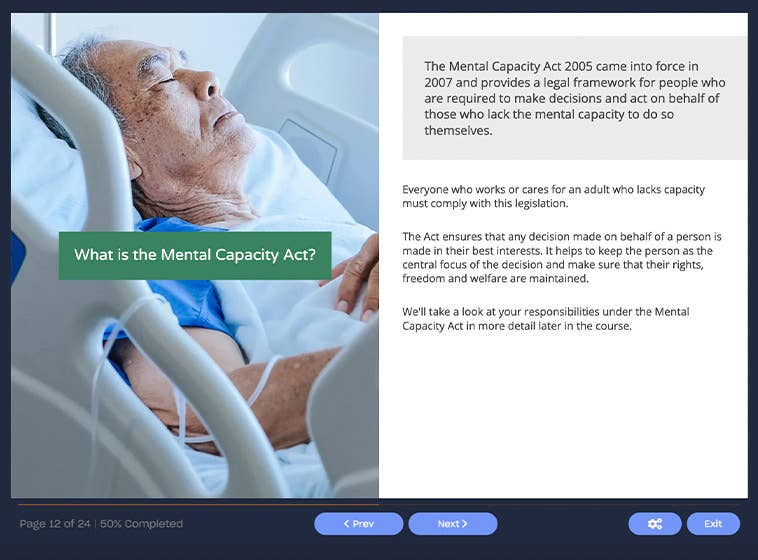
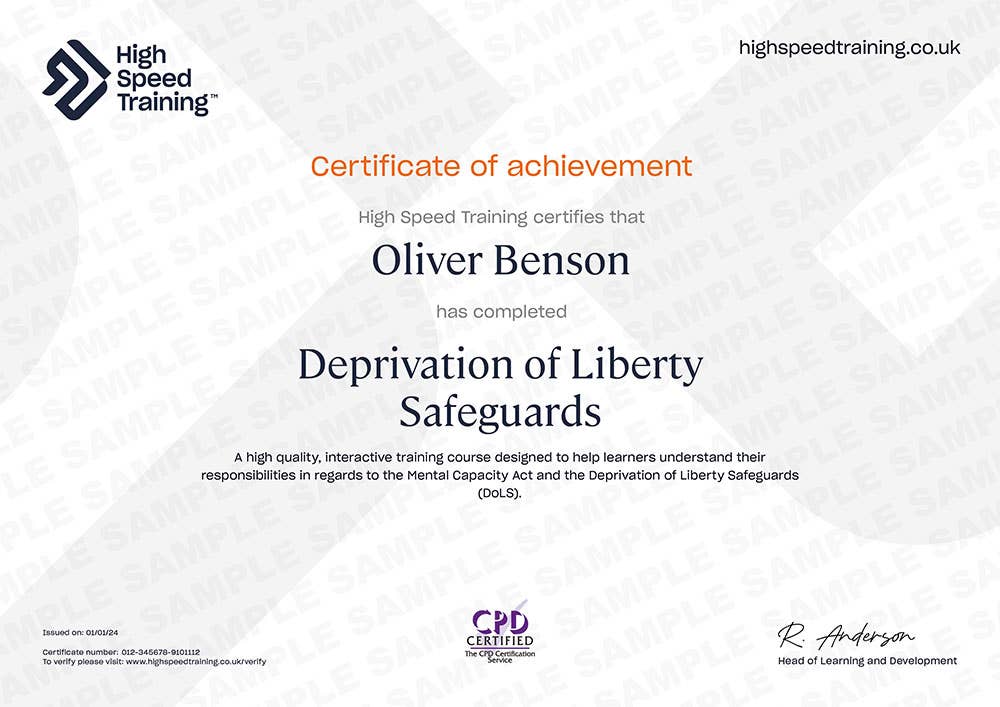




The Mental Capacity Act, decisions covered by the Mental Capacity Act, the Deprivation of Liberty Safeguards, who the Safeguards apply to, related legislation, key definitions and the Bournewood case study.
Is deprivation the same as abuse? Types of abuse, restraint, restriction vs deprivation and identifying deprivation.
What are the five principles? Assuming and assessing capacity, helping someone to make a decision, personal beliefs and preferences, best interests, a less restrictive alternative and what if people disagree over best interests?
When is a deprivation of liberty acceptable? Obtaining authorisation, the application process, assessments, receiving authorisation, representatives, reviewing authorisation, challenging the authorisation and protection from liability.
The online assessment is taken on completion of the training material. You will be asked 20 multiple choice questions with a pass mark of 80%. The answers are marked automatically so you will instantly know whether you have passed. If you don't pass don't worry! You can take the test as many times as you need with no extra charge.
This course is suitable for anyone who works directly with adults in need who lack the capacity to make particular decisions for themselves, and who are required to act on their behalf. It also applies to people who work with adults in need and who may, in the future, encounter adults who lack the capacity to make their own decisions.
The Mental Capacity Act places responsibilities on anyone who looks after or cares for someone who lacks capacity to make decisions. This includes roles such as:

In partnership with
Antonia Noble
Barrister and Safeguarding Specialist
Antonia Noble is a criminal barrister with over 29 years of experience. She is also a highly respected safeguarding specialist both in the UK and Internationally.
She has worked in the public sector at the Criminal Cases Review Commission and as a Cabinet Member at a large county council with responsibility for services including safeguarding, and child protection including multi-agency working at the most senior level.
Antonia has a range of safeguarding and child protection experience including education at all levels. She is currently the Chair of SAND Multi Academies Trust.
All of our training is done within your web browser - there are no apps to download or software to install.
After picking the courses you need and completing your purchase, you will receive a confirmation email. To access our courses yourself or to distribute them to others you just need to click the ‘Get Started’ button within the email and select which option you want. You will then be able to add the course(s) into an existing account, or create a new account.
Of course just add the amount of courses you need and follow the purchase process. Please do be aware that it is one course per learner so they will all need their own course.
When buying courses for a team you'll also get access to our Management Suite free of charge. This is a tool that will allow you to allocate, track and review the training of your team.
Did you know? - We offer free training sessions on how to get the most from your Management Suite. To benefit from this, please contact: managersupport@highspeedtraining.co.uk to get your session booked in.
Yes, our bulk discounts are automatically applied to orders containing any combination of courses. We offer the following discounts on bulk purchases:
If you purchase 10+ courses you receive a 10% discount
If you purchase 50+ courses you receive a 20% discount
If you purchase 100+ courses you receive a 30% discount
If you purchase 500+ courses you receive a 40% discount
You can pay for our training using either a Debit or Credit card.
For companies ordering 5 or more courses, you’ll also be given the option to pay by invoice. If you would like to pay by invoice for fewer than 5 courses then please contact our Sales Team by calling 0333 006 7000 or emailing us at sales@highspeedtraining.co.uk.
Yes. You can use your username and password to log in and revisit the training material as many times as you like, even after completing the course.
No, we want our courses to work around you so there’s no time limit in which you must complete the training after making a purchase. You can also split your training over as many different sessions as you wish, as course progress is saved as you make your way through the training. You’re free to learn entirely at your own pace.